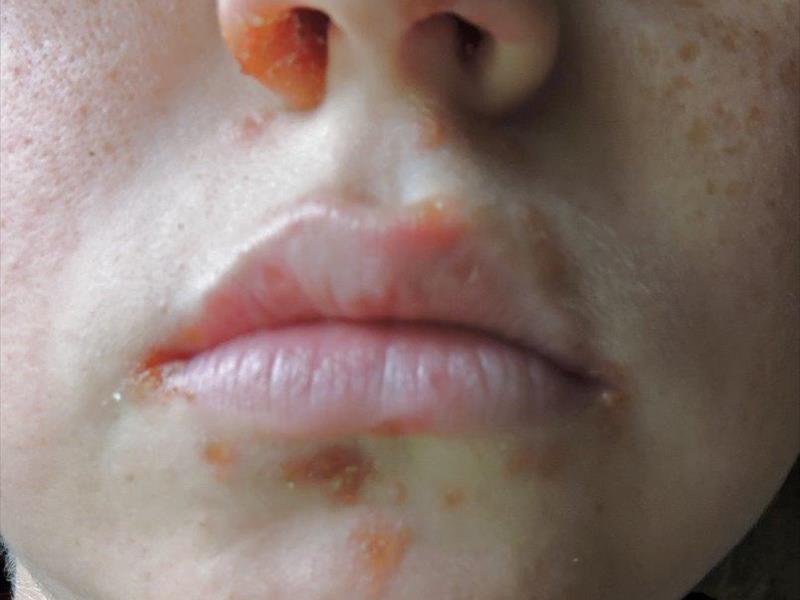Coxsackie is not a single virus but a group of viruses collectively referred to as Coxsackie viruses. There are approximately 29 different viruses that are classified as "Coxsackie". The Type A Coxsackie virus commonly causes the hand, foot and mouth disease and the Type B group usually causes more serious conditions. There are numerous disease conditions that can be caused by coxsackie viruses and they are listed below.

Conditions Caused by Coxsackie Infection
Symptomatic Coxsackie in adults most commonly results in a nonspecific illness with fever. Asymptomatic Coxsackie virus infection can also occur, together with nonspecific febrile illness. They constitute nearly 9 out of 10 cases of coxsackie virus infection.
Less commonly, Coxsackie virus infection can result in more severe conditions like meningitis, encephalitis, paralysis, myocarditis, pericarditis, diabetes, rash conditions (hand, foot and mouth disease), etc. Here is a table:
|
Conditions |
Symptoms |
|---|---|
|
Meningitis |
Inflammation of the meninges covering the brain Symptoms: Fever, chills, headache, nausea and vomiting, neck pain, photophobia, seizures, etc. |
|
Encephalitis |
Inflammation of the brain. It is an uncommon manifestation of Coxsackie virus infection. Symptoms: Symptoms of meningitis + variable neurological symptoms |
|
Paralysis |
Rarely, coxsackie virus infection can result in paralysis. Usually, the paralysis resolves with time. |
|
Pericarditis |
Inflammation of the sac covering the heart Symptoms: Sharp chest pain, shortness of breath, fever, weakness, swelling in feet, etc. |
|
Myocarditis |
Inflammation of the heart muscles. It can result in heart failure and death. Symptoms: Shortness of breath, chest pain, poor exercise tolerance, fever, swelling in feet, etc. |
|
Type 1 Diabetes |
Coxsackie virus is believed to cause some cases of Type 1 Diabetes (insulin dependent diabetes mellitus that occurs more commonly in younger age group). Coxsackie virus infection damages insulin producing cells of the pancreas, resulting in diabetes mellitus. |
|
Hand, Foot and Mouth Disease |
It occurs more commonly in children, but can also occur in adults. Symptoms: Sore throat, fever, rashes followed by vesicular eruptions in foot and hand that later ulcerate |
|
Herpangina |
It occurs commonly in children between ages of 3-10 years. But Coxsackie in adults is possible. Symptoms: Fever, headache, sore throat, painful swallowing, ulcers in mouth and throat, etc. |
|
Pleurodynia |
Inflammation of chest muscles Symptoms: Sudden pain in chest and upper abdomen |
|
Hemorrhagic Conjunctivitis |
Inflammation of the conjunctiva of the eye Symptoms: Pain and swelling of the eyelids, red eye, and headache |
|
Hepatitis |
Inflammation of the liver Symptoms: Fever, anorexia, malaise, jaundice, nausea and vomiting, weakness, etc. |
Coxsackie Virus Infection and Immunosuppression
Coxsackie virus infection is more likely in conditions resulting in immune system dysfunction. Moreover, the symptoms are more severe and last longer in immunosuppressed individuals. Immune system dysfunction can occur in patients with long standing diabetes mellitus, organ transplant recipients, AIDS, anti-cancer chemotherapy, cancers, etc.
Treatment for Coxsackie Virus Infection
Treatment is mainly symptomatic and supportive. No specific drug is available that is effective against Coxsackie in adults.
- One should maintain adequate personal hygiene (washing hands with soap and water after defecation, frequent washing of hands, etc.) to minimize the chances of spread of infection to other people.
- Dehydration should be avoided by drinking plenty of water.
- Other treatment depends upon the symptoms (pain killers for pain, saline gargles with lukewarm water for sore throat, drugs like acetaminophen for fever, etc.).
Prevention of Coxsackie in Adults
They commonly spread because of ingestion of contaminated food or water. They might also spread by respiratory droplets. So maintaining proper personal hygiene is of paramount importance.
- Hands should be washed frequently by both the infected and normal people.
- Personal items should not be shared.
- Steps should be taken to maintain cleanliness in the house.
- Fecal contaminated waste of baby use (diapers) should be properly disposed off.
